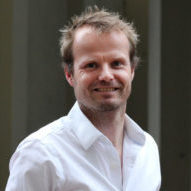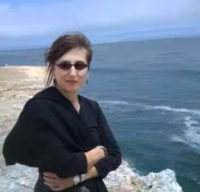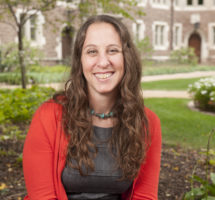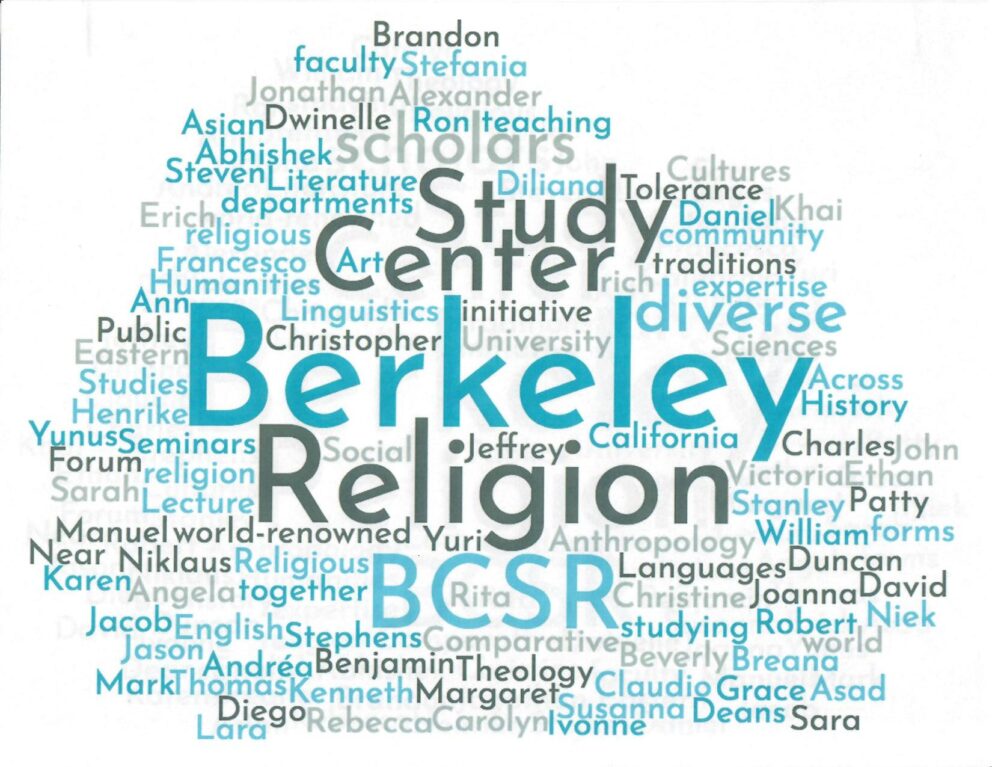Now in its seventh year, BCSR recently added several new members to its advisory board. Robert Braun (Sociology), Stefania Pandolfo (Anthropology) and Ronit Stahl (History) will join current board members Charles Hirschkind, Asma Kazmi, Niklaus Largier, Joanna Picciotto and Jonathan Sheehan, and BCSR co-directors Karen Barkey and David Marno.
 Robert Braun combines archival work with geographical information systems to study civil society and intergroup relationships in times of social upheaval. He has recently finished a book, Protectors of Pluralism: Religious Minorities and the Rescue of Jews in the Low Countries During the Holocaust (Cambridge University Press). His new research project studies the political causes and consequences of anti-Semitism by exploring racial themes in German children’s stories. In the past he has worked on the geographical spread of different types of political violence such as terrorism, anti-immigrant attacks, and soccer hooliganism.
Robert Braun combines archival work with geographical information systems to study civil society and intergroup relationships in times of social upheaval. He has recently finished a book, Protectors of Pluralism: Religious Minorities and the Rescue of Jews in the Low Countries During the Holocaust (Cambridge University Press). His new research project studies the political causes and consequences of anti-Semitism by exploring racial themes in German children’s stories. In the past he has worked on the geographical spread of different types of political violence such as terrorism, anti-immigrant attacks, and soccer hooliganism.
 Stefania Pandolfo studies theories and forms of subjectivity, and their contemporary predicaments in the Middle Eastern and Muslim world, investigating narrative, trauma, psychoanalysis and the unconscious, memory, historicity and the hermeneutics of disjuncture, language and poetics, experimental ethnographic writing, anthropology and literature, dreaming and the anthropological study of the imagination, intercultural approaches to different ontologies and systems of knowledge, modernity, colonialism and postcolonialism, madness and mental illness. Her current project is a study of emergent forms of subjectivity in Moroccan modernity at the interface of “traditional therapies” and psychiatry/psychoanalysis, exploring theoretical ways to think existence, possibility and creation in a context of referential and institutional instability and in the aftermath of trauma, based on ethnographic research on spirit possession and the “cures of the jinn,” and on the experience of madness in a psychiatric hospital setting.
Stefania Pandolfo studies theories and forms of subjectivity, and their contemporary predicaments in the Middle Eastern and Muslim world, investigating narrative, trauma, psychoanalysis and the unconscious, memory, historicity and the hermeneutics of disjuncture, language and poetics, experimental ethnographic writing, anthropology and literature, dreaming and the anthropological study of the imagination, intercultural approaches to different ontologies and systems of knowledge, modernity, colonialism and postcolonialism, madness and mental illness. Her current project is a study of emergent forms of subjectivity in Moroccan modernity at the interface of “traditional therapies” and psychiatry/psychoanalysis, exploring theoretical ways to think existence, possibility and creation in a context of referential and institutional instability and in the aftermath of trauma, based on ethnographic research on spirit possession and the “cures of the jinn,” and on the experience of madness in a psychiatric hospital setting.
 Ronit Y. Stahl is a historian of modern America. Her work focuses on pluralism in American society by examining how politics, law, and religion interact in spaces such as the military and medicine. Her book, Enlisting Faith: How the Military Chaplaincy Shaped Religion and State in Modern America (Harvard University Press, 2017), traces the uneven processes through which the military struggled with, encouraged, and regulated religious pluralism in the twentieth century. Her current research examines the rise of institutional and corporate rights of conscience in health care. This project weaves together the court decisions, legislation, medical and bioethical arguments, religious ideas, and lived experiences that shaped the disparate trajectories of reproductive healthcare, LGBT healthcare, and end-of-life care from the 1970s to the present.
Ronit Y. Stahl is a historian of modern America. Her work focuses on pluralism in American society by examining how politics, law, and religion interact in spaces such as the military and medicine. Her book, Enlisting Faith: How the Military Chaplaincy Shaped Religion and State in Modern America (Harvard University Press, 2017), traces the uneven processes through which the military struggled with, encouraged, and regulated religious pluralism in the twentieth century. Her current research examines the rise of institutional and corporate rights of conscience in health care. This project weaves together the court decisions, legislation, medical and bioethical arguments, religious ideas, and lived experiences that shaped the disparate trajectories of reproductive healthcare, LGBT healthcare, and end-of-life care from the 1970s to the present.

